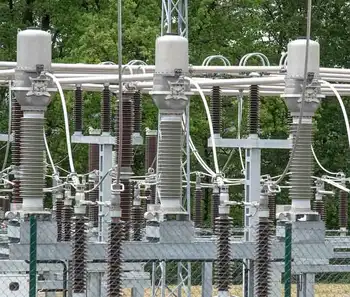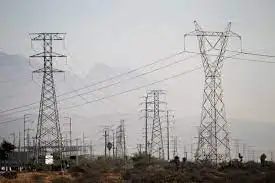No Decision In Market Manipulation Case
PORTLAND -- - Portland General Electric and federal regulators failed to reach agreement this week on whether the Oregon utility helped its parent company, Enron, manipulate electricity markets during the 2000-01 energy crisis.
Settlement talks, held in Washington, D.C., marked the second time PGE attorneys and Federal Energy Regulatory Commission staff have huddled to try to hammer out a settlement. An agreement could range from absolving PGE of any wrongdoing to forcing the utility to pay refunds.
PGE attorney Jay Dudley declined to provide details about the meeting or to say whether any progress was made.
"At the conclusion, there was a promise to continue the discussions," he said.
The faltering discussions increase the likelihood that the investigation will proceed until a hearing before an administrative law judge, now scheduled for June 2. Initially, the hearing had been set for April 1, but Jeffie Massey, the judge assigned to the inquiry, recently pushed back the date.
Massey also took the unusual step of allowing oral testimony at the hearing, noting the "unique nature" of the proceeding.
A decision from Massey is due July 17.
Two other utilities, Avista Corp. of Spokane and El Paso Electric in Texas, previously reached settlement agreements with the FERC staff over their alleged involvement in trades with Enron. If the deals are finalized, Avista will be absolved and El Paso will pay refunds.
FERC launched its investigation into PGE's trading practices in August, focusing on trades with Enron that occurred over a 17-day stretch in the spring of 2000. The now-bankrupt Enron has been at the center of controversies over greedy, manipulative traders and the degree to which their activities may have contributed to the year-long crisis.
FERC's trial staff has argued that PGE aided Enron in a strategy dubbed "Death Star." The tactic created false congestion on California's transmission grid and allowed Enron to collect payments for easing an overload that never actually existed.
PGE's involvement violated federal regulations governing trades between affiliated companies, the trial staff maintains.
PGE argues that it never knowingly helped out Enron and that the affiliate transactions were legal.
Judge Massey won't weigh in on the matter until the hearing is held and a decision issued. But her recent order to revise the procedural schedule drew an unusually sharp response from PGE.
In her Jan. 17 order, Massey wrote, "Evidence reveals that Portland General Electric Co. has, apparently, admitted that it engaged in most of the manipulative transactions and posting violations identified in staff's direct case."
PGE shot back that Massey's remarks indicated she already had assumed the utility's guilt.
"It appears that the presiding judge has strayed from the role of impartial decision-maker and has now adopted the cloak of chief prosecutor," PGE attorneys wrote in a Jan. 23 response.
"For the record, Portland General does not admit to engaging in any "manipulative" trades," the filing continues. "Yes, it does concede that it entered into the so-called 17 days transaction with EPMI (Enron Power Marketing Inc.), but PGE has disputed and will continue to dispute that at the time it became involved in those transactions neither it or its employees believed them to be improper."
The motion asks Massey to clarify the meaning of her remarks. It also asked for more details on what type of additional testimony might be allowed during oral arguments.
Dudley said PGE is concerned that other parties in the case might withhold new information until the last minute in an effort to "ambush" the utility.
In addition to FERC, interveners in the case include the City of Tacoma, whose public utility bought high-priced power during the energy crisis and was forced to dramatically increase customer rates to cover the costs. It blames Enron, PGE and others for contributing to the market run-up and is seeking refunds.
Philip Chabot, an attorney for Tacoma, is pushing for more time to gather evidence against PGE, and he said he supported Massey's latest efforts to revise the schedule.
Massey "clearly understands that up to this point no one has had adequate access to information," he said.
Chabot said PGE has failed to persuade him of its innocence.
"Not for a minute do I believe PGE didn't know what it was doing when it aided Enron in Death Star," he said.
Melinda Davison, an attorney for the Industrial Customers of Northwest Utilities, another party in the case, said she will file documents today countering PGE's efforts to limit testimony.
"We think it's an appropriate accommodation by the judge to create a full and complete record," she said.
Related News

FortisAlberta Takes Necessary Precautions to Provide Electricity Service for Alberta
CALGARY - As the COVID-19 pandemic continues to evolve in Alberta (and around the world), FortisAlberta is taking the necessary actions and precautions to protect the health and well-being of its employees and to provide electricity service to its customers. FortisAlberta serves more than half a million customers with the electricity they depend on to take care of their families and community members throughout our province.
"We recognize these are challenging times as while most Albertans are asked to stay home others continue to work in the community to provide essential services. As your electricity distribution provider, please be assured you…




